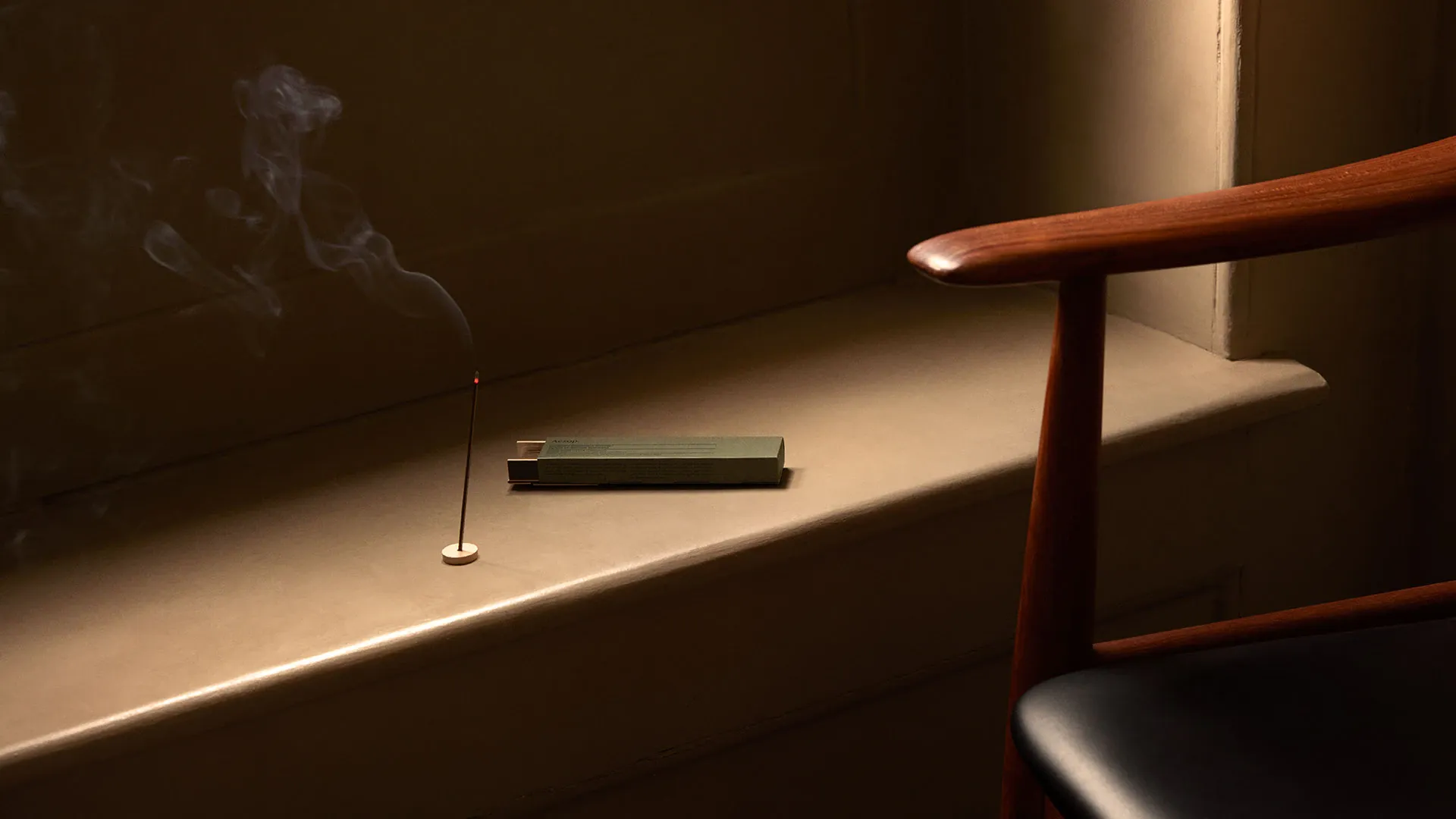Reverence & Resurrection
Aesop's cult credit.

Aesop is Scientology for smart people.
It's harnessed something powerful: the divine.
One must pray that L’Oreal knows what to do with it (unlikely), because its appeal isn’t in well-developed products or fine scents or great design or good distribution or a refined retail aesthetic, although those are valuable. Aesop’s power is in hijacking spirituality. It goes for the soul, attempts to own you. It speaks to the dark part of you that longs to be in a cult.
This is a profoundly human impulse.
Everything we do in part reflects this unmet need, the parts of us that seek life beyond the mundane. We were promised happiness — but affluent life turns out to be a joke; a never-ending treadmill of meetings, dinner dates, status games, interest rates, sleepless nights, guilt over your privilege, being jealous of apartments on Netflix, navigating middle-class drama, waiting 24 months for a new Audi, measuring the minutes of your life in lattes.
Make it past survival, and the point at which you can easily afford products from the likes of Aesop isn’t the point you buy them, it’s the point you need them. The starving spirit is almost dead now; begging to release the lush, sensory parts of ourselves. Our lack of fulfillment makes us weak, grooms us for the power of a cult.
We all, a part of us, want to surrender. We all, a part of us, want to be told what to do. We all — a part of us, want to be told that everything will be ok.
Aesop takes the codes of spirituality and repackages them as secular in order to sell you soap. It presents a world that is absolute, calm, impermeable, in charge, perfect.
Aesop harnesses our need to worship.

Over the years, these traits have become clearer.
Most companies make an attempt at culture – usually a ham-fisted combination of perks and virtue signalling – but if you work there, Aesop has rules. No loud make-up, no strong scents, no outside brands, clear desks. Black is the only acceptable colour. Cults strip you of your identity; Aesop gifts you a new one, so you may better serve the unmet needs of the affluent in your loving, cosmetic embrace.

As a customer, you may join the congregation.
To enter an Aesop store is to step into their ritual space. Their sensory storytelling is unmatched; crisp Autumn leaves to signal the new season, eucalyptus oil washed in the doorways… a stage-managed temple. They create church spaces the way Tadao Ando does, sacrosanct and industrial; part zen, part luxe, right down to the eastern, ritualised handing over of the product.
These products are the tell. A tube of hand cream lets us buy Reverence; as a path to heaven, we gift Resurrection. Aesop executives, when asked, resist the terminology - they hate the idea it’s a cult, add levity with Post-Poo Drops and talk banalities about best practice. The denial is the point: talk too hard about it and you’re a cheap televangelist.
The power of cult lies in its certainty, the knowledge that your peers will understand and accept you. To have the product on you is to be marked; a lingering, insanely potent hyperscent. To leave the temple is to wear its sacrament for days.

Many companies attempt this.
In its day, Apple reigned, but growth has dissipated its power — they're too wealthy to be disciplined now, the Apple acolytes baggy and apologetic; Tim Cook isn’t godly enough, he's too operational, more focused on DAUs than devotees.
Supreme elevated streetwear by ripping off conceptual art; Tom Ford draws from deviance; Balenciaga from sadomasochism.
Aesop is magnetic because it steals the power of faith.
We killed god and went shopping: the brand wraps the spiritual in a story we can accept.
Elevates materialism to the divine, speaks to the parts of ourselves we suppressed.
Aesop is Scientology for smart people, because in exchange for your tithe, it grants you temporary absolution from the bullshit of modern life.
Everything is a disappointment, but for this sensory moment.
Hand over your credit card, and belong.
Receive Reverence.
Resurrection.
.
.
.
all images: Aesop
